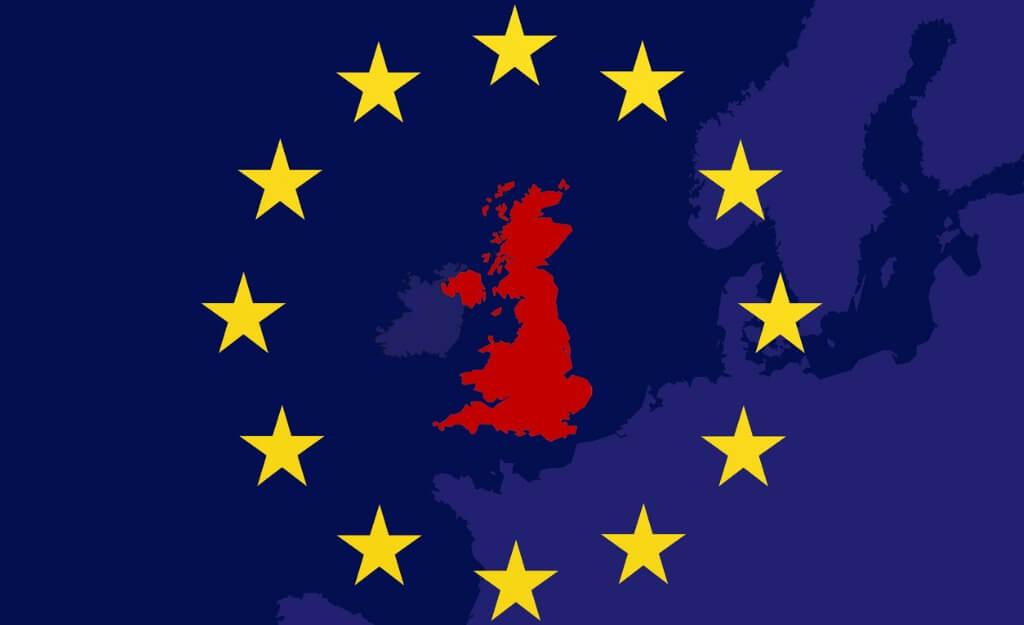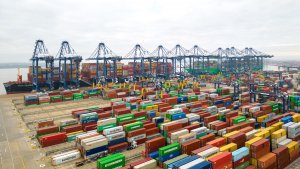How Businesses Can Survive A Culture Shock Post-Brexit
Companies should act now to ensure their people and values are aligned ahead of March 2019.

None of us know what the future holds after 29th March 2019. Both the political and business landscapes are evolving from one week to the next. And as innovation and technology continues to increase the pace of change, leaders have to find new ways to stay competitive.
We might be in the middle of a national culture shock, but looking at external influences and trying to predict the future is of limited use. Instead, one of the best things businesses can do this side of Brexit is to look within and ensure their own behaviours, values and people are aligned.
Measuring achievement against key performance indicators (KPIs) is an important way of making sure companies keep succeeding. But one critical aspect of company performance is escaping measurement: culture.
Most business leaders currently have limited knowledge of what organisational culture even means and many consider it to be limited to the HR function. But strong company culture is a core strategic lever of sustainable growth.
Ironically, culture is what organisations need to make a priority if they are going to avoid feeling the effects of a wider culture shock post-Brexit.
Don’t be fooled
Culture affects more than staff engagement. It impacts every aspect of a company’s operations, and at its worst means that bad processes are justified because “that’s just the way we do things here”.
Every organisation has a culture, whether it’s been deliberately constructed or has just developed over time. The best company cultures need careful design and support, and by implementing a strong culture, leaders can help create value for their businesses.
Too many companies invest in technology and expect that it alone will drive change. This is a big mistake. New tech that’s badly implemented often makes processes more complex but fails to maximise returns on the investment. Technology is just a tool, so if it’s not used well it’s often ineffective.
Digital transformation is actually 90% about people and culture – only 10% of its success is about the technology. Rather than depending on tech to effect cultural change, leaders need to build a culture that selects the right innovations and uses them to create value.
● Here’s my first piece of advice: invest in your team and put people first during major business changes. The rest will follow. The right people, with the right mindset, can achieve great things: technology is just an enabler.
Change for the better
Change can be hard. Organisations often resist it. And although culture change has to be driven by leaders, everyone needs to live and breathe it. Never treat company culture as a mission statement or something you discuss twice a year at performance reviews.
Culture is the backbone of a business: it needs to be something leaders and employees invest in every day.
Despite this, some leaders are still unaware of how much they influence their company culture. We conducted some research into this, which has just been launched in a new report via Think with Google.
The research found that thirty-two percent of people strongly agree that the way leaders behave is a reflection of their organisational culture, yet only twenty-four percent of employees strongly believe their leadership is not aware of the impact their behaviour has on the company or its people.
Clearly, employees scrutinise leaders’ behaviour, and what they see changes how they act.
This means leadership teams can profoundly influence positive changes. Corporate values don’t have much real value unless they have buy-in across the organisation.
Putting them into practice has to be led from the top down: as a leader, making the right decisions creates an environment where it’s easier for everyone else to do the same.
● Tip number two: put behaviours to the test and consider the impact of your actions when engaging with all stakeholders, including clients, colleagues and suppliers.
Get ahead of the game
Policymakers and business owners still tend to focus on more traditional drivers of productivity, such as innovation, education and training, and investing in physical capital. But this doesn’t mean you have to limit yourself.
In the last twelve months, companies have been encouraged to prepare for Brexit in a plethora of ways, such as scrutinising supply chains, developing contingency plans and auditing existing contracts. But culture is rarely on the radar.
Businesses and commentators often neglect it because it’s considered intangible – even ‘fluffy’ and lacking in real impact. It has traditionally been difficult to quantify culture’s impact, but this doesn’t change how important it is to company performance.
What’s more, new technology means it’s now possible to accurately measure the impact of your company culture. By calibrating culture against set categories, these systems create an insightful overview of how a company operates.
Businesses should hone in on these four attributes to future-proof themselves against any internal culture shocks next year:
● People
● Organisation
● Leadership
● Technology
Detailed analysis of each category can show how systems and processes can be improved so that staff feel motivated and secure, and are able to roll with the punches the wider environment might throw.
Avoiding a sharp shock
It goes without saying that business leaders need to keep hitting their existing KPIs to make sure they are achieving across the board. But culture is the new kid on the block.
Companies that invest in culture as a strategy for better performance are future-proofing their business. Poor culture inhibits everyone’s ability to implement the company’s strategy and live its core values, which leads to low workplace productivity, underperforming teams and high churn rates.
These are problems at the best of times, but in a turbulent business environment they could make or break an organisation’s survival.
Here’s my final piece of advice: position culture as a strategy. Building a high-performance culture systemically across an organisation creates continuous value, which means it’s a vital new KPI to get to grips with in the lead up to 29th March and beyond.
Thomas Davies is founder and CEO of Temporall.
Thanks for signing up to Minutehack alerts.
Brilliant editorials heading your way soon.
Okay, Thanks!

